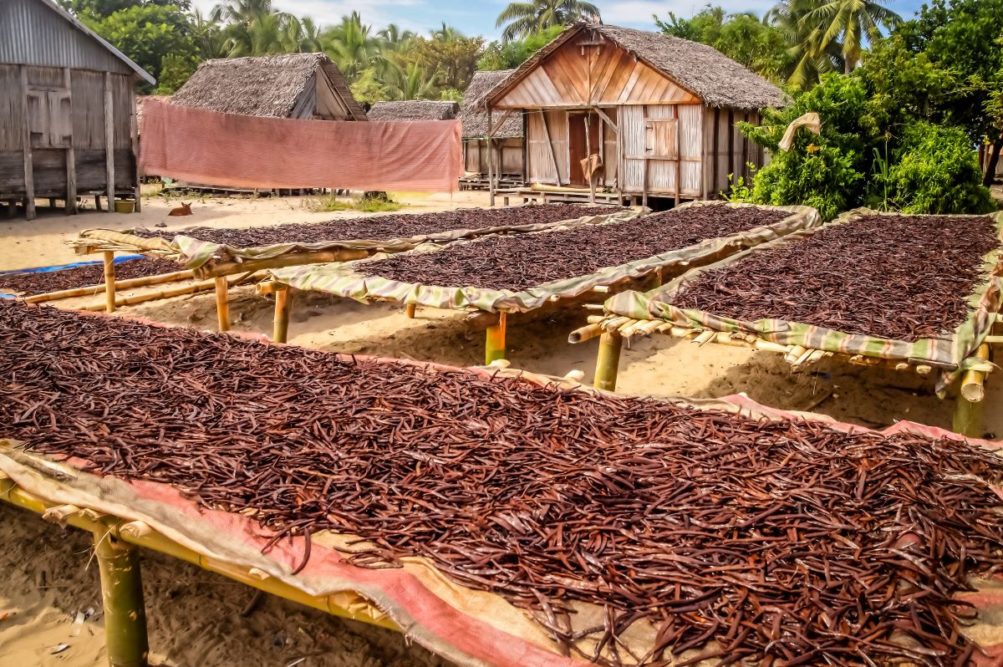BEVERLY, MASS. — Developing sustainable supply chains is not a new concept for Prova SAS. The global supplier of cocoa, coffee and vanilla extracts has a long history in championing sustainability, working to ensure its raw materials supply chain is equitable for both producers as well as end users.
The challenge always has been balancing the need to provide producers with a sustainable income and providing end products that are competitively priced. Adding to the challenge is, today, the equation has shifted as sustainability continues to trend toward playing a greater role in consumer purchasing decisions.
For Muriel Acat, president of Prova, she has been dealing with these market dynamics during her tenure with the company.
“The market is always a little bit behind us,” she said during an interview with Food Business News. “We have been in the markets for cocoa, coffee and vanilla since ’76, ’77, and we are a big player and I’ve seen how it has evolved.”
Ms. Acat said 15 to 20 years ago, one of the biggest concerns around sustainability was cost — customers saw the benefit but wanted someone else to bear the cost.
“But things have changed,” she said. “We can see that the market, and when I say the market, I mean our customers are evolving.
 Muriel Acat.
Muriel Acat.Source: Prova SAS.“We are going to pay the price, but they (customers) are also going to carry part of it. We are a team in that sense, and they can benefit from the sourcing.”
The tension between the economics of sustainable production and the need of buyers to get the best prices will always exist and always will be influenced by market volatility.
“I want to commit to more sustainable sourcing where the first step in the supply chain has a chance to benefit from the arrangement,” Ms. Acat said.
Using the vanilla business as an example, she added, “During the last five years we’ve had very high vanilla prices on the supply side and the growers/planters made money. But the market is more down now, and we have to make sure it doesn’t affect the supply chain.”
Prova has entered a variety of programs and partnerships to ensure the development and permanence of sustainable supply chains.
In 2016, for example, the company partnered with chocolate and cocoa supplier Barry Callebaut on a five-year project to diversify and stabilize the revenues of vanilla farmers in Madagascar through the introduction of cocoa farming. The project also sought to increase the levels of vanilla curing at the farm level and support the adoption of good agricultural practices (GAP).
In June 2022, a second phase of the project was launched after the first phase “exceeded all expectations,” according to the companies. The second phase will continue GAP training and introduce more community-based social initiatives. Further diversification of commodities also is being evaluated. Those under consideration include aquaculture, cattle, patchouli and poultry.
Other programs Prova is involved in include Vanille Durable Bemanevika, which aims to increase vanilla farmer income in Madagascar through better bean quality and higher yields. The company also is a part of the Sustainable Vanilla Initiative with such companies as Firmenich and Mars to promote a long-term stable supply of vanilla that is produced in a sustainable way.
“Our objective is to reach 50% of our supply chain sourcing in a sustainable way in an eight-year horizon from now,” Ms. Acat said. “That may seem a little conservative, but I think it’s because we need to bring our customers along in the partnership.”
For Prova itself, Ms. Acat sees the company’s sustainability initiatives as part of the business’ overall point of differentiation in the market.
“We try to have a more personalized offer,” she said. “We take more time with our customers. We customize flavors more than the big guys, who tend to standardize. How we approach our supply chain is part of the value of our products as well as our customers’ products.”






